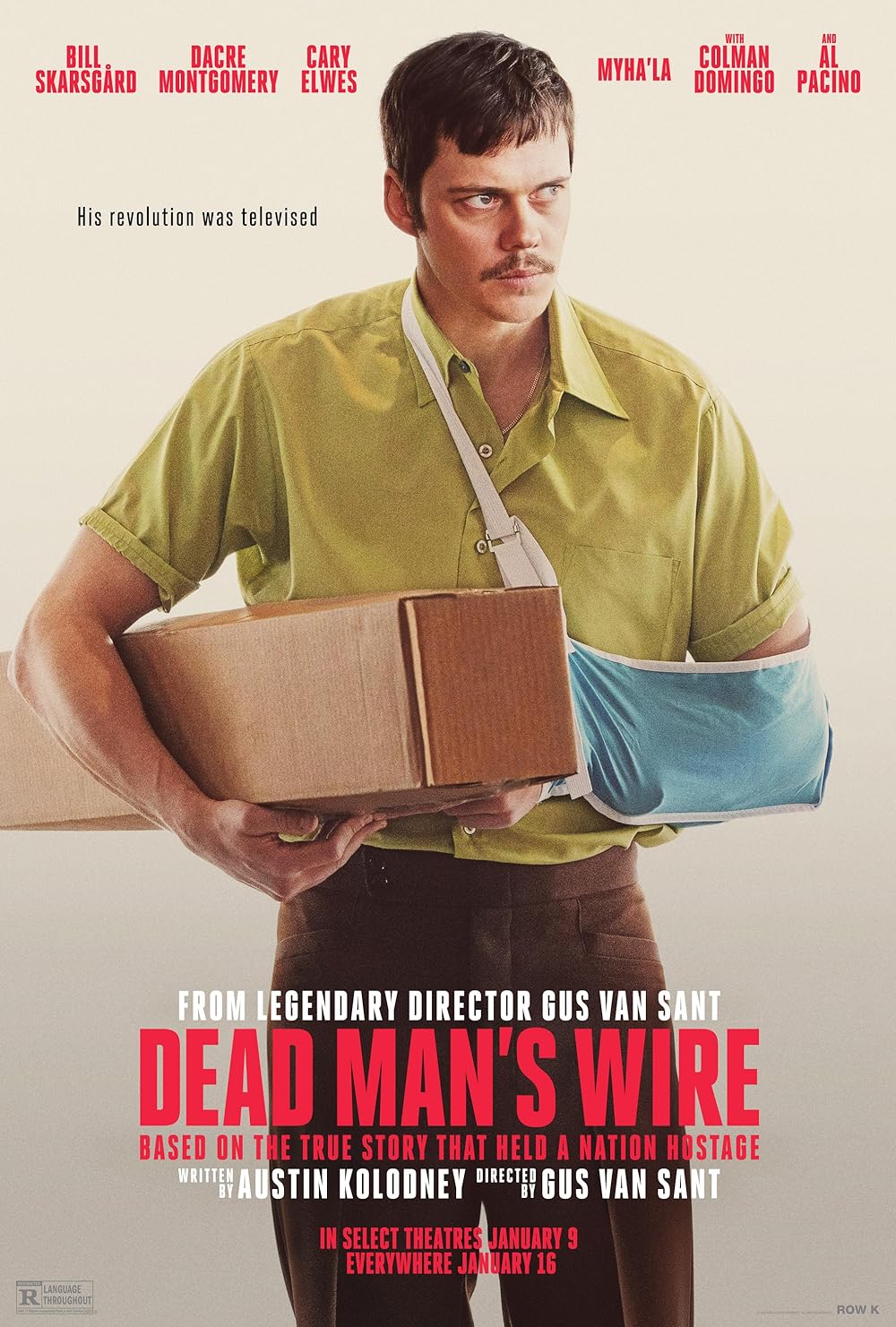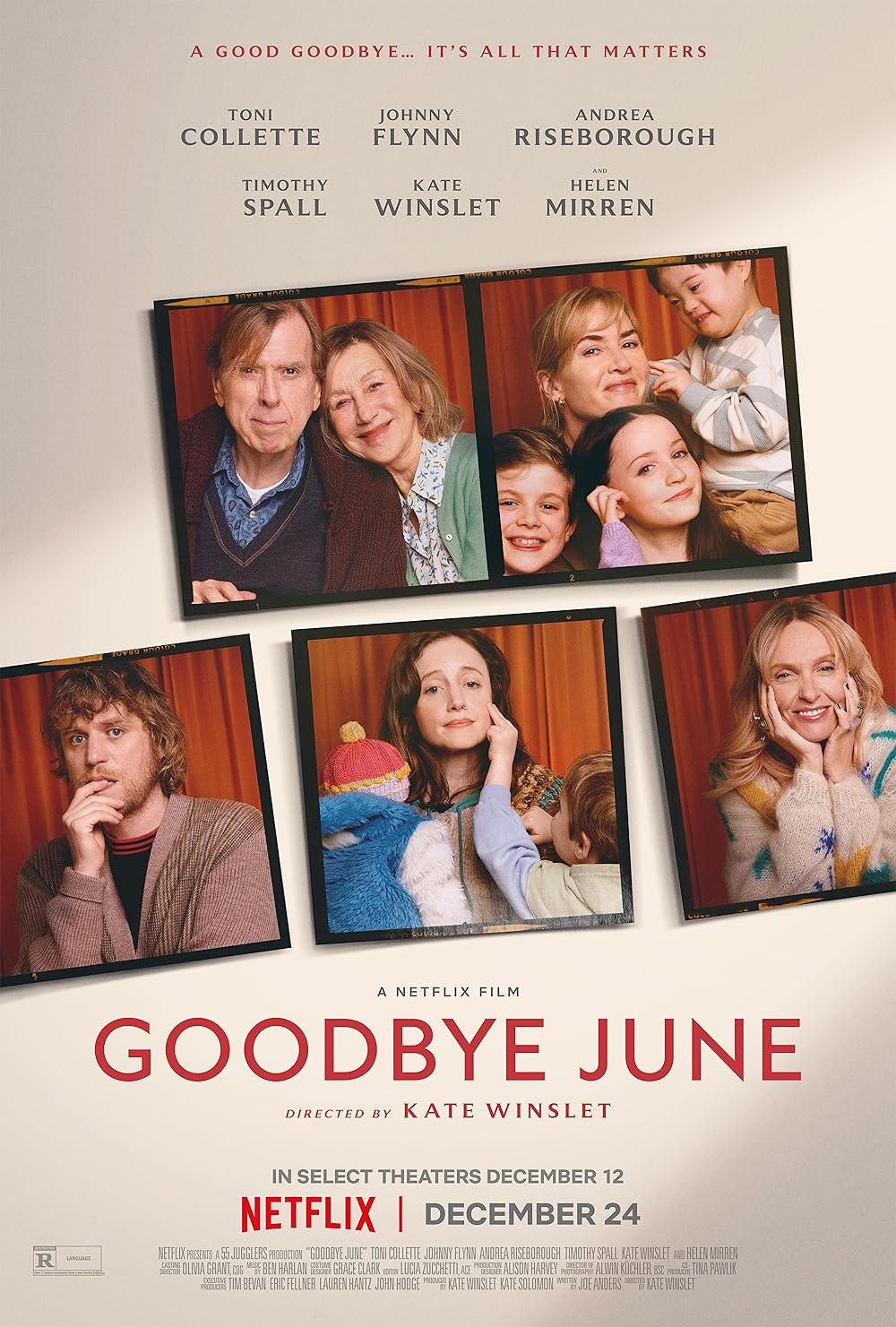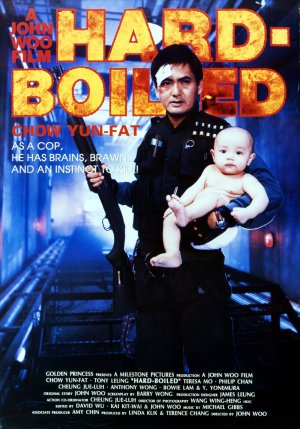|
New
Releases |
February 13, 2026



 |
January 30, 2026



 |
January 16, 2026



 |
January 9, 2026

 |
January 2, 2026


 |
December 26, 2025





 |
December 19, 2025


 |
|
|
|
In
the Bedroom
(2001)
Directed by
Todd Field

Review by
Zach Saltz
Posted - 9/20/09
There may be more explosive movies, like
Schindler’s List and
GoodFellas, that are spectacular in
their vision and audacity. There may be more subtle, heartbreaking
movies, such as The Best of Youth and
The Man in the Moon,
whose characters are so well developed that the viewer may feel slighted
at the movie’s finale and at the sudden, solemn realization that these
screen personae will be soon abandoned forever. There may be
movies with great speeches, like The Grey Zone, or movies with
more quirky, naturalistic characters, like
Fargo , or better-shot
movies (Days of Heaven) or more profound movies elucidating the
profundities of the human existence (My Dinner With Andre).
There was once even a movie that brought me to outright tears –
something that has yet to be repeated (Jeux Interdits). But
none of those movies are perfect. Todd Field’s
In the Bedroom
is, and it is in that perfection – that absolute void of a single false
note, a single offbeat or unusual line or framing shot, a single glance
or expression of the characters that could possibly strike the viewer as
untrue – that makes it the best movie I have ever seen.
In the Bedroom. The title is cloyingly
evocative, but not of the sexual nature we might assume. The
meaning and significance of the title is explained in an early scene
(when two male lobsters are put in the same trap as a single female, and
the violence between the creatures which will soon ensue). But
this explanation is plebian, at best. The film is about sex, but
not intercourse. It is about the disconnect between men and women,
and how external events reveal internal truths, leading the male and
female personae closer together. The characters here are trapped in a
vortex of feminine domesticity, and the only way to escape this
claustrophobic milieu is by partaking in male physical aggression.
The façade of happiness rings so often in this film, and it is painful
and inevitable to see it crumble at the hands of the truth slowly coming
out.
In the Bedroom begins in the early days of
summer and ends at the beginning of the impending autumn, and in the
course of that mythical time, the motions of love, grief, and revenge
are examined. These are the film’s three movements, and like a
baroque symphony, each movement has a different texture and atmosphere.
One of the delights of In the Bedroom is how as a result of these
three distinct movements the story is unpredictable and effortlessly
compelling; the viewer simply has no idea what to expect next.
Unlike the Andre Dubus short story from which it is based (entitled
“Killings”), which uses a framework of looking backwards from the
present events – which eventually evolve into the third and final act of
the story – director Field opts to tell the film version in
chronological order, to astonishing effect; quite simply, it is the most
unpredictable film I’ve ever seen. The “looking backwards” effect
may have worked, but Field’s straightforward retelling is relentlessly
compelling: Like many of the great classical symphonies, the film simply
gets better as it goes along, with each new and unexpected venture into
uncharted narrative terrain. So many films begin strong and get weaker
as they go along. This motion picture begins strong, never
falters, and actually gets better as it moves along, until it
reaches its thrilling final climax.
The film stars Nick Stahl as Frank Fowler, an
ambitious college student studying architecture, who is romantically
involved with an older, divorced woman, Natalie (Marisa Tomei) complete
with two children and a resentful ex-husband who wants her back (William
Mapother). The film’s opening scene shows the two lovers
frolicking in a summer field. “I can feel my life, you know,”
observes Natalie prophetically as the two caress each other. This
scene is the epitome of carefree lovers escaping from the turmoil that
will soon encapsulate and ultimately destroy their lives and the lives
of those around them, but there is no indication, from the opening half
hour of the film, that In the Bedroom will in any way be a
tragedy.
The young Fowler character lives with his parents,
Matt and Ruth (Tom Wilkinson and Sissy Spacek). They are both Ivy
League-educated professionals (he is the town physician, she is a high
school choir director) who take pride in their intellect and perhaps
look down slightly at Natalie, who did not complete college and works as
a cashier at a convenience store. They both worry that their son
is getting too involved with her – that “Do you really
think he loves her?” Ruth asks Matt as they lay in their bed one
evening. “Girls always have,” sheepishly replies Matt.
But the merry summer romance is interrupted by the
unwelcome presence of Natalie’s violent ex-husband, Richard Strout
(William Mapother), who refuses to accept that his wife no longer loves
him. An early encounter between the two of them at a kitchen table
reveals the startling dynamics of their relationship; Natalie, timid and
unsure, defines what a good father is, while Richard ruthlessly mocks
and scorns her. Strout then proceeds to provide one of the key ideas of
the film: That his intentions have always remained the same – to protect
his own self-interests – while the circumstances in his life have
changed around him. This notion of individualism vs. external
events will become a central question of the film.
Then, something happens – something of significant
magnitude that should not be divulged in a review of the film. But
it is safe to say that this shattering event changes the entire feel and
purpose of the motion picture. No longer is
In the Bedroom
about the haphazard ways young adults try to break from the grasp of
their overprotective parents, or how Instead, the film
examines the way grief overtakes the lives of characters whose previous
actions could be defined broadly as “good” and “moral.” It deals
with characters trying desperately to preserve normalcy in the wake of
enormous tragedy, and to the extreme measures that it sometimes takes to
ensure it. Like all the great character studies in films, the
second part of In the Bedroom unblinkingly shows the painstaking
attempts of the characters to
The final act of the film again takes an entirely
new direction, this time focusing on the necessary actions done to
rectify the characters’ ennui through the second half. The final
part culminates in an act that few audience members will see coming, not
because the event itself is unforeseeable, but because we don’t believe
the character involved would have the power to indulge in such a
shocking act. The film is not about how external situations altar
our internal urges, but how feminine domesticity and complacency cover
up male aggression, until the rare instance comes along when the
aggression is not only condoned, but warranted by the female ethos.
Like Macbeth,
In the Bedroom
ends with us questioning who
had all the aggression in the first place. Is it that the male ego
has fallen victim to himself, or the female internal anger has impressed
itself upon a hapless man who simply wants to please her? What are
the true intentions of the characters by the end of this picture?
If you have not seen this film, such questions sound vague. But by
the end of this picture, it will be impossible
not to debate its
polarizing and fiercely divisive turn of events.
The acting in
In the Bedroom is, simply put,
the best ensemble acting one is likely to find in a motion picture.
Nick Stahl plays young Frank as innocent, but not naïve; someone who
wants complete autonomy without completely realizing the ramifications
of it. William Mapother is ominous and lucid, but in a painful
scene toward the end of the film that involves a framed picture (rarely
has a film used motifs and symbolism so well), we see the faintest bit
of humanity in this supremely flawed man. Sissy Spacek towers
through the second portion of the film, and many scenes are focused
purely on her grief. She quietly tries to return to her daily
routine, but the breadth of the tragedy is too much to overcome.
There is a stunning scene where the characters around her laugh, and the
camera focuses on her discomfort with humor at the time of grief.
Should she be blamed for her inability to get over the tragedy?
Perhaps she feels more responsible than she leads on.
Marisa Tomei, in perhaps the film’s most difficult
role, brings sympathetic vulnerability yet equally pathetic naivety to
Natalie. Her character is polarizing (right down specifically to
the gender lines of the viewer – men seem to pity her, women tend to
despise her). Either she is too stupid to realize that her
relationship is jeopardizing the well-being of her and her children, or
she is so self-centered that she is willing to compromise all of Frank’s
hopes and dreams. And yet, we sympathize with her because Frank is
the first man in her life who seems to give her any sort of respect.
She is a good woman whose frustrations cannot be realized because of her
social standing with the Fowlers.
But the film belongs to Wilkinson, a Brit whose
solemn eyes and wary posture suggest the veneer of a hard-working,
middle-aged man no longer content with the successes of his own life,
but who would rather get personal fulfillment from witnessing the
successes of his son. An early scene reveals this when he takes an
early lunch break to go down to the pier to see Frank’s catch for the
day. He is more interested in lobsters than surgery, and
middle-age banality has taken a toll on him. Does he vicariously
live through Frank, as Ruth accuses him of? Does he have a choice?
When the dreams and hopes of children are either achieved or lost, than
the hopes of their parents die with them.
Field is masterful at using symbolism and central
motifs throughout the whole of the story. Windows, for example,
play an integral role, whether it is Frank Fowler looking out the window
to find Richard Strout, or whether it is the windows in the kitchen we
look through when we see a dispute erupt between the vulnerable Fowler
couple. The camerawork here, by Antonio Calvache, captures the
mood of confrontation by using a hand-held, but uses starkly realistic
montage to render a seamless illustration of pain and fear. The
music, by Thomas Newman, is sparingly used, but when it is, it
powerfully reinforces the somber atmosphere.
Like all psychologically taut masterpieces,
In
the Bedroom will invariably raise questions, discussions, and
arguments among its viewers. I feel the central theme of the movie
can be best summed up in a speech given by Strout to Natalie early in
the film: “I don’t change; the people around me change.” The film
argues that we are all capable of depraved acts of violence.
Society tells us not to act upon those impulses. But when society
fails us by letting the guilty go free and rendering justice benign, our
personal impulses are the governing dynamic in the way we act.
This is true natural law – fear and aggression, and no man-written law
can prevent it.
Above all else,
In the Bedroom takes
tremendous risks in telling its story. It offers no easy
solutions, no characters who are holistically, altruistic good or
brutally, wholly evil, but rather, characters that lie within a broad
spectrum of morality that remains unchanging even through the most
trying of circumstances. The brilliance of the film is that it is
able to portray the sympathetic Matt Fowler character as a lovable
doctor, husband, and father – but not without the capacity to be a
cold-blooded killer for the name of what he considers just. We see
Ruth Fowler as a caring and effortlessly devoted wife and mother – who
is also bitter, remorseful, and perpetually unpleased at the lack of
prudent thinking on the part of those around her. Even the
supposedly fractured marriage of Richard and Natalie can be seen in an
entirely new light in a key scene toward the end of the film, when Matt
stumbles across a certain object that would have one believe that the
Strout family was, at one point like the Fowlers, functional,
tight-knit, and happy.
I saw
In the Bedroom when I was just shy of
15 years old. I remember the occasion vividly, watching it with my
parents in a crammed theater. Afterwards, we discussed the movie.
While they liked it, even though they felt it was too depressing, it was
clear that the film had done something to me that it had not done for
them. The events of the story and the characters had taken me to
places that I could not have imagined the power of cinema ever to have
taken me before. The film transfixed me. I don’t watch it
too often for fear of seeing it too much, or familiarizing myself to too
great an extent with it. But each time I return to it, I am
constantly reminded of the power of cinema to tell a great, pure story,
and mold powerful and explosive responses from its audience. The
bridge between spectator and stage has never been so thin.
Rating:

# 1 on Top 100
# 1 of 2001
|
|
New
Reviews |
2023 PINOT BEST PICTURE

PODCAST DEEP DIVE |

Podcast Featured Review |

Podcast Featured Review |
Todd #4 Most Anticipated

Podcast Review - Todd |

Podcast Review - Adam |

Podcast Review - Zach |
Top 10 Blindspot

Podcast Review - Adam |
10th Anniversary

Podcast Oscar Review - Terry |
30th Anniversary

Podcast Oscar Review - Terry |
2025 PINOTS

Nominations & Debates |
2024 Pinot Best Picture

PODCAST DEEP DIVE |

Podcast Featured Review |

Podcast Review - Todd |

Podcast Review - Zach |
Top 10 Blindspot

Podcast Review - Adam |
10th Anniversary

Podcast Oscar Review - Terry |
20th Anniversary

Podcast Oscar Review - Terry |

Podcast Review - Zach |
TOP 10 FILMS OF 2025

LIVE ON YOUTUBE!!! |
Reactions to the Nominations

Written Article - Todd |
2026 Oscar Predictions: Final

Written Article - Todd |
Todd Most Anticipated #5

Podcast Featured Review |

Podcast Review - Todd |

Podcast Review - Terry |
|
|
|